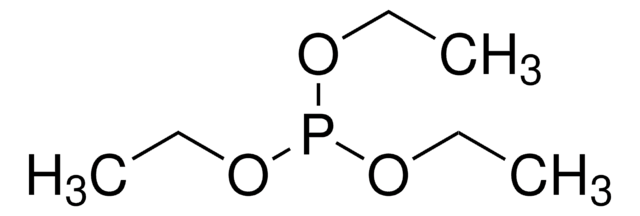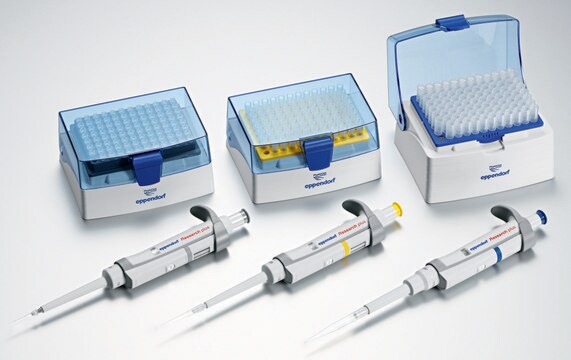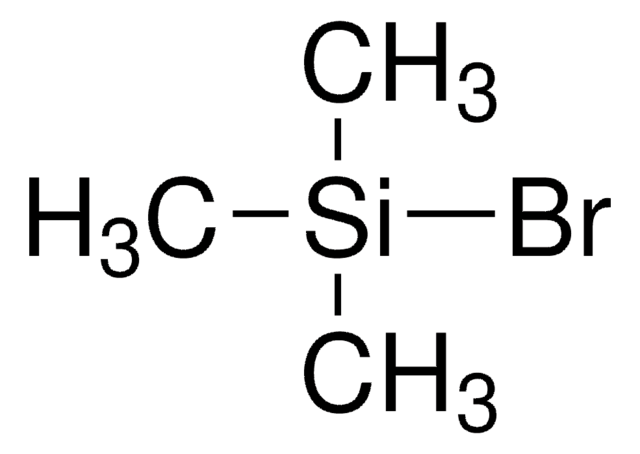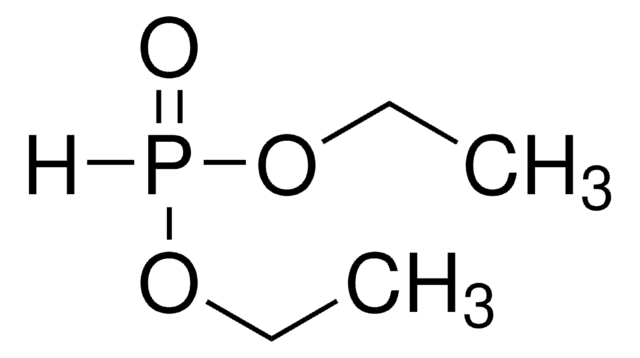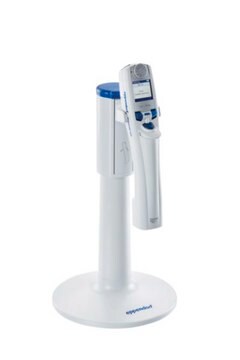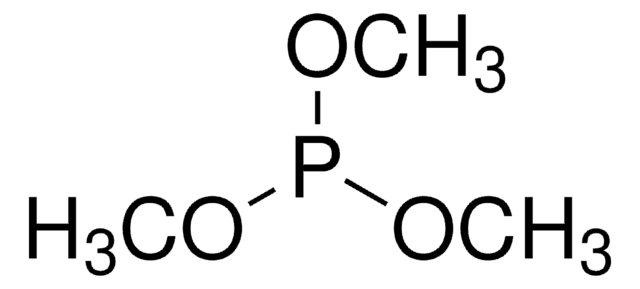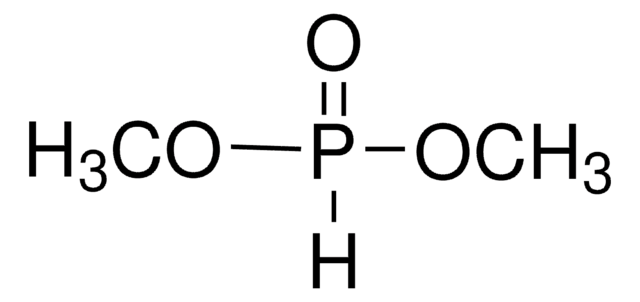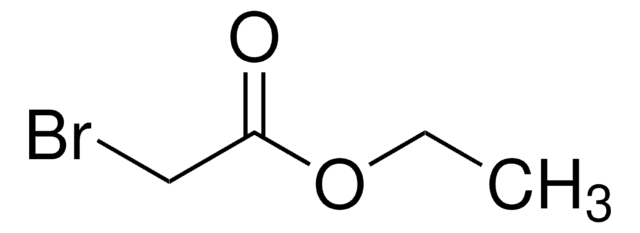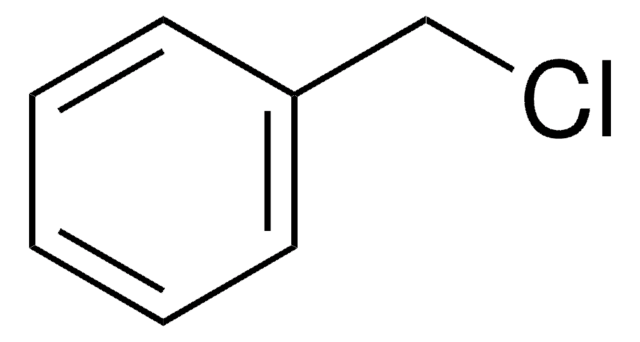8.00549
Triethylphosphite
for synthesis
Synonyme(s) :
Triethylphosphite
About This Item
Produits recommandés
Pression de vapeur
<6 hPa ( 20 °C)
Niveau de qualité
Essai
≥97.0% (GC)
Forme
liquid
Température d'inflammation spontanée
250 °C
Puissance
2800 mg/kg LD50, skin (Rabbit)
Limite d'explosivité
3.75-42.5 % (v/v)
pb
156-158 °C/1013 hPa
Pf
-112 °C
Température de transition
flash point 52 °C
Densité
0.956 g/cm3 at 20 °C
Température de stockage
no temp limit
InChI
1S/C6H15O3P/c1-4-7-10(8-5-2)9-6-3/h4-6H2,1-3H3
Clé InChI
BDZBKCUKTQZUTL-UHFFFAOYSA-N
Application
- Mechanism of acylative oxidation-reduction-condensation reactions: Research details the use of triethylphosphite as a stoichiometric reductant in acylative oxidation-reduction-condensation reactions, utilizing benzoisothiazolones as oxidants. This study provides insights into the reaction mechanisms and potential applications in synthetic chemistry (Gangireddy et al., 2017).
- Synthesis and antitumor activity of oxazaphosphinane derivatives: A study on the efficient synthesis of novel oxazaphosphinane derivatives using triethylphosphite, exploring their antitumor activities. The research includes X-ray crystallography, DFT studies, and molecular docking to evaluate the potential medical applications (Bahadi et al., 2023).
- Reductive Ireland-Claisen Rearrangements: Triethylphosphite is highlighted in copper-catalyzed reductive Ireland-Claisen rearrangements of propargylic acrylates and allylic allenoates, demonstrating its role in facilitating complex molecular transformations in organic synthesis (Guo et al., 2022).
- Desulfurization under UV light: Triethylphosphite is used in the synthesis of deoxyglycosides through desulfurization processes under UV light, showcasing its utility in glycoscience and the development of new glycoconjugates for various applications (Ge et al., 2017).
- Detection and identification of volatile trialkylphosphites: A derivatization strategy employing triethylphosphite for the detection and identification of volatile trialkylphosphites using liquid chromatography-online solid phase extraction and offline nuclear magnetic resonance spectroscopy, highlighting its analytical applications (Mazumder et al., 2015).
Remarque sur l'analyse
Density (d 20 °C/ 4 °C): 0.955 - 0.957
Identity (IR): passes test
Mention d'avertissement
Warning
Mentions de danger
Conseils de prudence
Classification des risques
Acute Tox. 4 Oral - Aquatic Chronic 3 - Flam. Liq. 3 - Skin Sens. 1B
Code de la classe de stockage
3 - Flammable liquids
Classe de danger pour l'eau (WGK)
WGK 2
Point d'éclair (°F)
129.2 °F - closed cup
Point d'éclair (°C)
54 °C - closed cup
Certificats d'analyse (COA)
Recherchez un Certificats d'analyse (COA) en saisissant le numéro de lot du produit. Les numéros de lot figurent sur l'étiquette du produit après les mots "Lot" ou "Batch".
Déjà en possession de ce produit ?
Retrouvez la documentation relative aux produits que vous avez récemment achetés dans la Bibliothèque de documents.
Les clients ont également consulté
Notre équipe de scientifiques dispose d'une expérience dans tous les secteurs de la recherche, notamment en sciences de la vie, science des matériaux, synthèse chimique, chromatographie, analyse et dans de nombreux autres domaines..
Contacter notre Service technique